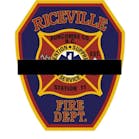ATLANTA --
Fire Station Number 7 watched over the businesses, students and residents of Atlanta's historic West End neighborhood for nearly a century.
It remained among the city's busiest firehouses until last month, when Atlanta Mayor Shirley Franklin decided to shutter the station amid a mounting $14 million debt. Hundreds of citizens signed a petition opposing the decision, forcing the mayor to reconsider.
Now the fire station has become one of the most visible signs of the city's budget crisis. And the debate over its fate has set up a showdown between Franklin and the city council, which is set to decide on Monday whether to reopen the station.
Councilman Cesar Mitchell contended the city can save the historic station if it cuts spending in other departments. His proposal would transfer $1.1 million from various city departments to keep the station open for at least another year. "We should not be here," Mitchell said Friday at a news conference held outside the now-dark fire station. "This fire station should not be closed. It's a question of priorities."
He was flanked by about two dozen community supporters -- many of whom held "Save 7" signs -- and drivers honked their horns as a show of solidarity.
Most of the council has indicated its support for the measure, but Franklin said Friday she will veto any effort to rescue the station.
Reopening the station "does not serve the best interests of the City as a whole," she said, arguing that the city cannot afford such a move in the sour economy.
Fire Station Number 7 opened in 1910, and handles about 2,600 calls per year -- making it the fifth busiest in the city, Mitchell said. It was the only one of the 32 active stations in Atlanta closed amid the fiscal crisis.
State Sen. Vincent Fort, who lives in southwest Atlanta near the fire station, said the decision seemed arbitrary.
"It might've been that the people who made the decision believed it was the path of least resistance, that the community around it would not respond," Fort said. "How wrong they were."
Franklin said that Fire Station Number 7 is the only that could be closed without impacting response times -- a factor that was key in her decision to shutter the station.
"While the closure is unfortunate, and I fully recognize the community's historical ties to the station, we have an opportunity to reduce city spending by $1 million while still providing the level of service required by national emergency response standards," she wrote in the letter.
In addition to responding to fires, the station is a part of its neighborhood, serving as a blood monitoring station for older residents and a place to feed the area's homeless. The station's fire engine was also one of the city's advanced life support units, responding to emergencies ranging from burns to heart attacks to gun shot wounds.
"Its role as a first-responder is equally important," said Chris Wessels of the Atlanta Professional Firefighters Local 134. Incorporated in 1868, the West End neighborhood was named after the fashionable theatre district in London and was listed in the National Register of Historic Places in 1999. The area is the site of the Wren's Nest, home to author Joel Chandler Harris, who was known for his "Uncle Remus Tales."
For generations, the neighborhood was predominantly white, but by the 1960s blacks had moved in, including many associated with the nearby Atlanta University Center.
Craftsman bungalows with welcoming porches, gabled Queen Annes, columned Colonial Revivals and other historic homes dating back to the late 19th and early 20th century stretch for blocks along the tree-lined streets, many which are named for prominent Southerners like Robert E. Lee.
After standing for 98 years on the corner of West Whitehall and Oak streets, the station itself looks worn, with paint and plaster peeling from its facade. And the neighborhood's elegant structures are also a fire hazard, as many are constructed from decades-old wood.
"This area is very dense in population and buildings, and both are close together," Wessels said. "That makes it susceptible to rapid fire growth."
That observation is not lost on John Pavlin, a contractor who restored his first house in the neighborhood more than five years ago.
While he is concerned about the lack of a fire station in an area with so many old homes, he's more concerned that the station was shut down just before more than 10,000 students return to the Atlanta University Center next week.
"There's going to be a tragedy and who's going to be to blame?" he asked.
It's unclear how much longer Number 7 will remain closed.
"She could open it tomorrow if she wanted to," Mitchell said of Franklin. "It's all up to her."





